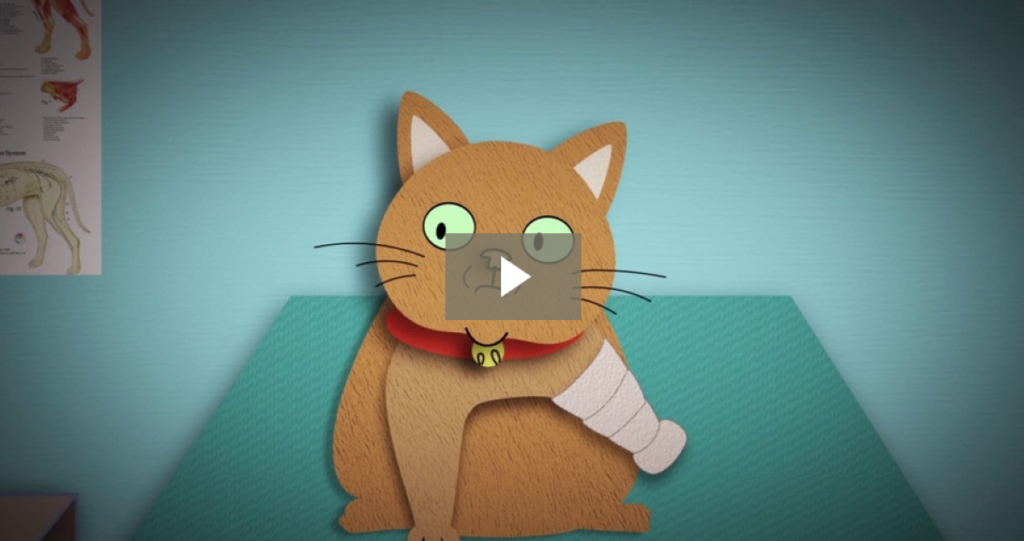Protect animals by protecting the title of veterinary nurse
Protect animals by protecting the title of veterinary nurse
A short film animation to raise awareness of the vital role played by veterinary nurses in the care and treatment of animals.
For more information, please visit our website at www.rcvs.org.uk/vntitle
Script
We all have the odd injury or scrape from time to time. When we do the pain and stress can be made bearable by the knowledge we'll be cared for by a qualified professional.
If you had to go to your GP or hospital, and saw someone wearing a 'nurse' badge, you would assume they were properly qualified and registered.
It should be no different when you take your pets to see a vet.
That’s where Registered Veterinary Nurses come in.
Veterinary Nurses are an integral part of the veterinary team. They provide expert nursing care for sick animals, and educate owners on maintaining the health of their pets.
As a career, Veterinary Nursing offers a wide variety of opportunities; whether it’s working with pets, horses or farm animals – or even the more exotic.
A qualification in veterinary nursing can also lead to a career in animal-related sectors such as insurance, pet food, the pharmaceutical industry, or teaching the next generation.
Registered veterinary nurses work hard for their registered status achieving high standards of education and professional conduct.
This is why the Royal College of Veterinary Surgeons (RCVS) new Royal Charter formally recognises veterinary nursing as a profession for the first time.
There are two routes to entering the field. Through vocational training to earn the Level 3 Diploma in Veterinary Nursing. Or by pursuing a degree in veterinary nursing on an RCVS approved higher education course.
Once qualified, they join the Register of Veterinary Nurses – held by the RCVS; entitling them to use the post-nominal, RVN.
This assures the public their pets are in the care of a highly qualified practitioner, subject to the most rigorous of professional standards, and governed by a code of conduct.
RVNs are required to undertake at least 15 hours of continuing professional development each year, keeping their knowledge and skills up to date.
Most significantly, under the Veterinary Surgeons Act 1966 a veterinary surgeon may delegate medical treatment or even minor surgery to a registered veterinary nurse, further underlining the level of training required to earn registered status.
Yet. Despite all of this. It is still possible for an unregistered person with no training to call themselves a veterinary nurse!
This could put animal welfare at risk.
This is why we strongly believe only people who have been properly trained and registered should be able to call themselves veterinary nurses.
Veterinary nursing is a profession to be proud of, and its status needs to be properly protected.
Support our campaign to protect the title ‘veterinary nurse’.





-01.png)